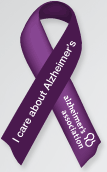One of the questions I am frequently asked by families and staff caring for people with Alzheimer’s disease is how to better understand the patterns of progression during the slow deterioration of the brain. This blog entry is a continuation of excerpts from my book, Alzheimer’s Basic Caregiving – an ABC Guide, as guidance on that topic. To order the book, click here.
In Stage 5, math, number and language deficits tend to grow more pronounced. People may not remember their address or phone. They may not be able to retain the names of three items on a grocery list or tell you a watch is a watch. But many people at this stage are aware of their growing deficits and anxious about it. They often try to hang onto every bit of independence they can, so that if you are a female caregiver and you tell a man with AD that it is time for him to get dressed, he is likely to say, Who died and made you boss?
However, most of today’s older men were raised with courtly manners, and years of "honey-do" lists from their wives and mothers. If, instead of giving an order, you can preface your request with a phrase like, Could you please help me with this? you are likely to be more successful.
Both their manners and their deeply ingrained tendency to be helpful make people in this stage natural hosts and greeters, so tap into this at social events. Station them at the door to welcome others or ask them to pass out drinks or desserts. Precisely because they want to hang onto their remaining strengths, they appreciate opportunities to be helpful and in residential or day care settings will often “parent” people in Stage 6 by helping with activities or grooming tasks such as brushing someone’s hair. My creative friend, Cameron Camp, Ph.D., former director of the Myers Research Institute, had success on that campus involving people in Stages 5 and 6 in a comedy club. Some people can still tell their own jokes, but Cameron provided others in large print on strips of paper that could be drawn from a hat and read. People who didn’t want to be jokesters were given other tasks – greeter, lemonade distributor, and audience members.
People in Stage 5 are usually able to go the bathroom on their own and eat on their own. They may be able to help with basic food preparation such as chopping vegetables, snapping beans, or stirring the cake batter, but they usually cannot be counted on to use a stove safely or follow a recipe without supervision. They tend to lose visual-spatial abilities so that setting a table or loading a dishwasher may be too challenging. They can still handle most grooming tasks, but some need their choices simplified – their clothes laid out in the order for putting them on, toothpaste put on their toothbrush and distractions such as cologne, lotions and hair spray removed from their line of vision. (This is definitely needed by Stage 6.)
Stage 5 is also when individual strengths are likely to begin showing up. Someone who was an accountant may not have the math deficits typical of this stage. A person who always did crossword puzzles and other word games may still be better than her peers at them. People who play a musical instrument may make some mistakes, but retain the basic skill until very late in the disease process.
There are also physical changes that tend to take place in Stage 5 as damage in the brain spreads to the hypothalamus – the part of the brain that controls body temperature and sleep. Difficulty sleeping or sleeping for an hour or two and then getting up and walking around are common in Stage 5 (and/or 6) and understandably upsetting to family caregivers who need their rest. People in Stage 5 also have a tendency to be colder than the rest of us, and nighttime restlessness and the tendency to be cold are sometimes related.
Next up: More middle stage changes in AD
Subscribe to:
Post Comments (Atom)








No comments:
Post a Comment